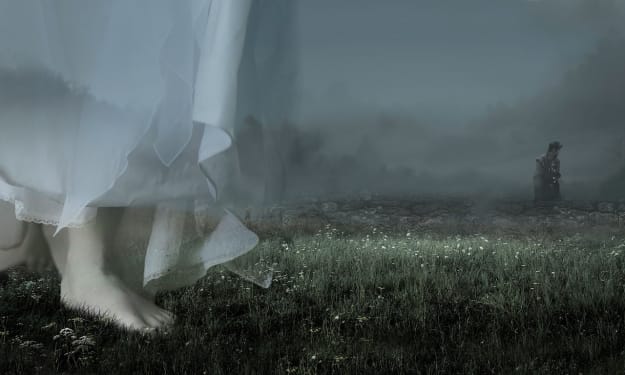Il trascendentalismo di Louisa May Alcott
Little Women

The region around Boston was simple and genuine countryside. “There,” says Cunliff, “the aspiring writer could live with very little, cultivating a piece of land to get what he needed for his livelihood […] and doing occasionally a trip to Boston to borrow books, or to meet with a publisher. […] it was in that circle of cultured and intimately connected communities, near Boston, that the phenomenon of transcendentalism appeared, an imprecise term and difficult to attribute to any among the most important figures of the time.”
These are writers imbued with Kantian philosophy, convinced of living in a beneficial universe, in connection with nature, romantic and in constant movement towards perfection, obtainable, moreover, only in America. It was Emerson who formulated the transcendentalist theory more completely. Among the many members of the movement, from Emerson himself to Thoreau, Hawthorne, Whitman, there was also Amos Bronson Alcott, father of Louisa May, the author of Little Women.
Louisa May was born in Germantown in Pennsilvania in 1832, then moved to Concord, west of Boston, with her family, the second of four sisters. She grew up in an “enlightened and progressive” environment, fiercely abolitionist and lived the reality of the Civil War. The father founded a school known for his revolutionary ideas, where the principle of respect for the spontaneity of the child is applied.
This is how Silvano Ambrogi describes Louisa, as captured in a portrait:
“We see her at the corner of a desk, with a dress with large, very long skirts, a white and voluminous curled bib, wavy hair and a large bun at the nape of the neck, in short, the appearance of a lady of the good society of the time. The arm appears fully extended, with almost D’Annunzio’s languor, but the viriloid determination makes an open contrast: the sunken look, which points straight ahead and the mouth tightly closed. The pen appears between the fingers as if it were a stiletto or a pistol.”
Amos Bronson transforms the house into a transcendentalist cenacle, frequenting Thoreau, Hawthorne and Emerson.
Louisa teaches the latter’s daughters and has free access to the library, where she reads everything from Plato to Dickens, her idol, whom she will meet during a trip on the old continent and of whom she will recreate The Pickwick circle, through secret society founded as a game by the protagonists of her most famous book.
She works as a nurse, falls ill with typhus, writes many successful books, containing all the elements of the classic nineteenth-century penny dreadful novels, with Gothic adventures and tragic heroines. During a trip to Europe as a lady of companionship — described in the second part of “Little Women”, the one that in Italy was published as “Piccole donne crescono” — lives a love with a musician who becomes the Laurie of the novel. She died in 1888, from a cold, while running to her father’s bedside without knowing that he died two days earlier.
Published in 1869, and then in the full version in 1880, “Little Women” refers to the life that took place in the Alcott / March house, during the years of the formation of the four sisters and offers us immediately the image of America in the second half of the Nineteenth century. Of the four girls, only Beth retains her original name and, like Louisa’s unfortunate younger sister, she too will die (although not in the first part).
Each of the protagonists has a distinct and different personality from the others, although they all grow in the same environment and under the watchful and wise eye of the mother. Since their first appearance on the scene, the terms used to refer to each of them immediately indicate their characters, shape them and make them stand out in the reader’s eyes.
“Christmas won’t be Christmas without any presents’ grumbled Jo, lying on the rug.
“It’s so dreadful to be poor!” Meg sighed, looking down at her old dress.
“I don’t think it’s fair for some girls to have plenty of pretty things, and other girls nothing at all,” added little Amy, with an injured sniff.
“We’ve got father and Mother and each other,” said Beth contentedly, from her corner.
In these first lines there is already the whole novel, the strengths and weaknesses of the sisters, the shortcomings that will condition the plot, their way of acting, their movements.
Jo, the tomboy, is lying on the carpet. For her, the author chooses the verb grumbled, she grumbled, to fix its warlike character from the beginning.
The romantic and wise Meg, (sighed) sighs about the wealth she cannot have that will lead her into temptation.
The spoiled and capricious Amy presents herself with an injured sniff, “an offended sniffle”, while for the good Beth, who shyly stands in a corner, the adverb contentedly is used, that is, with contentment, meekness.
The main character is Josephine (Jo) March, in which Alcott is mirrored. Through her, the author gives voice to her feminism, protesting against the injustices suffered by women. Jo is a tomboy, her only beauty is her hair, which she will deprive herself of in a surge of generosity. Clumsy and impulsive and furious, capable of alternating impulses and anger, she dreams of going to university, of fighting alongside her father in the Civil War. She is the intellectual of the house, the writer full of imagination who composes her stories and reads them in the attic to her sisters.
Following the teachings of her father Amos, Alcott believes deeply in God and in the possibility of improving herself, of making a sort of life pilgrimage towards transcendence, sublimation and improvement, which is symbolized by the little book given by her mother to the daughters at Christmas. This involves a fight for all four girls, but especially for Jo, who has the most difficult character. It will be of great help and comfort to discover that even the mother, apparently infallible, had to fight like her and to keep in check and reform her own nature. In the end, good will triumph over weaknesses, envy, whims and the sisters will find themselves more united than ever. Eventually the pilgrim’s transcendent journey will be accomplished.
About the Creator
Patrizia Poli
Patrizia Poli was born in Livorno in 1961. Writer of fiction and blogger, she published seven novels.






Comments
There are no comments for this story
Be the first to respond and start the conversation.